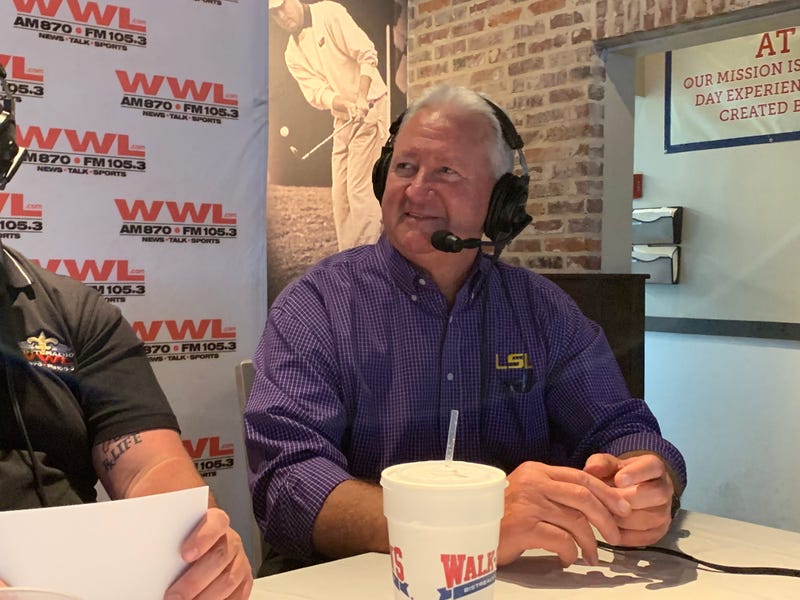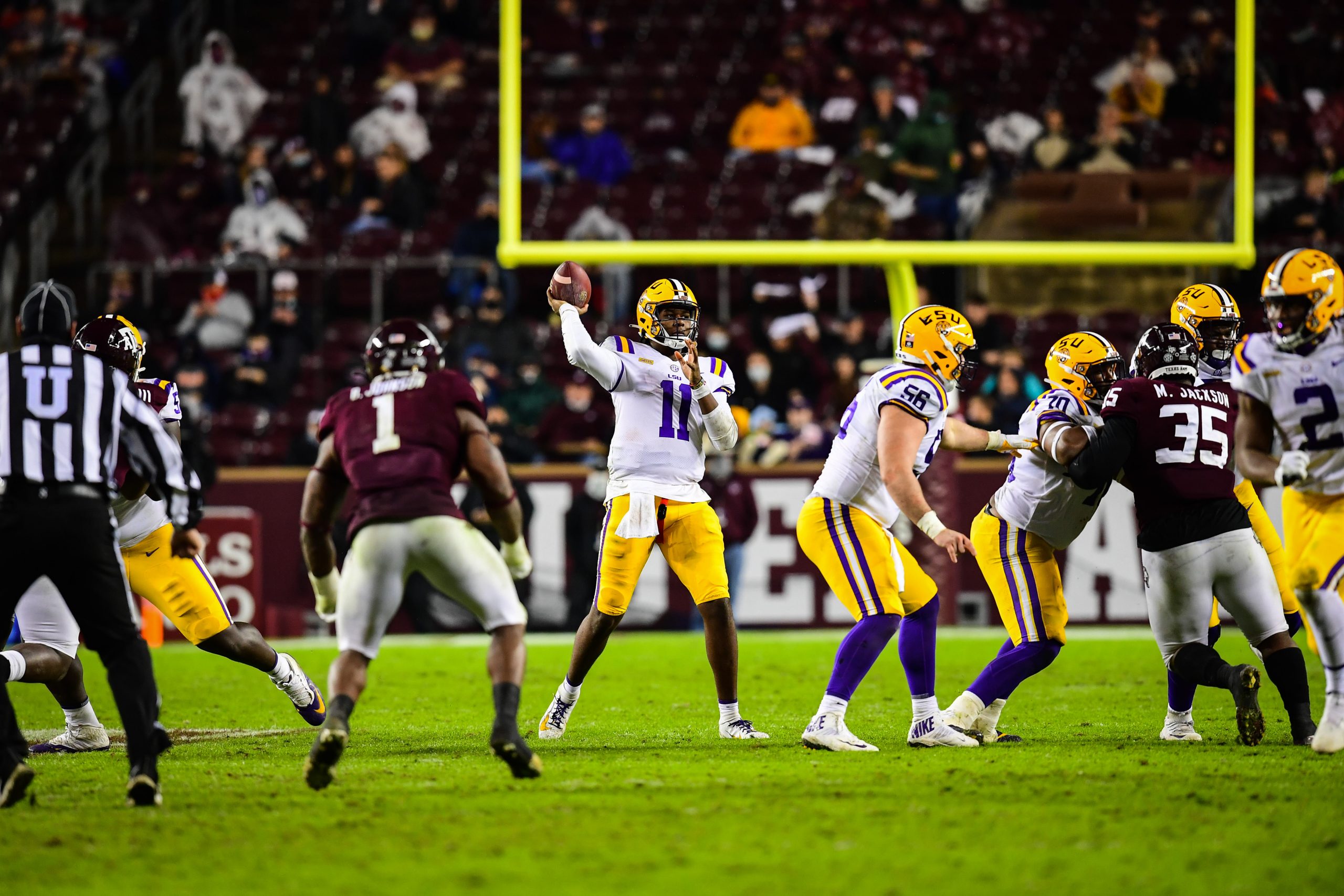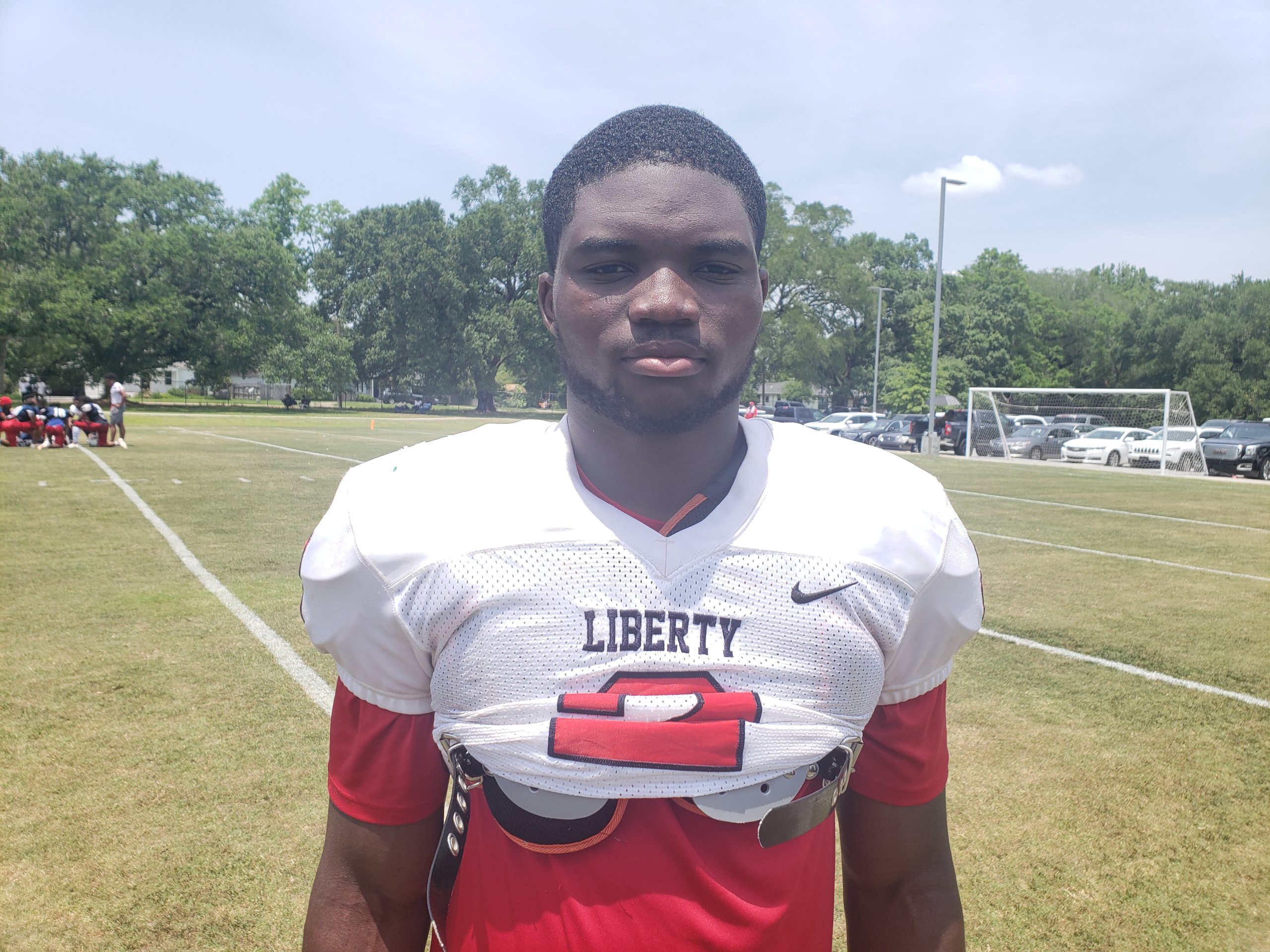
Welcome to the 21st and final category of our Tiger Rag High Five, the all-time most iconic LSU sports moment.
A 15-member media panel with a collective 582 years of sports journalism experience picked LSU’s five best athletes, coaches, moments, and individual game and season performances in 21 categories covering all present and past sports.
Voters on the panel were provided information of six to 10 nominees and were asked to rank one through five. The panel voters could also write-in their own candidates.
Scoring was tallied as 5 points for a first-place vote, 4 for second-place, 3 for third-place, 2 for second place and 1 for last-place. Ties were not broken.
The winner of the best-ever LSU most iconic sports moment is. . .
Billy Cannon’s 89-yard TD punt return 66 (8 first-place votes)
2. Warren Morris walkoff homer 59 (3)
His walk-off homer to win 1996 CWS title is regarded as the greatest college HR ever
3. Pete Maravich becomes all-time scoring leader in 1970 28 (2)
The Pistol passed Oscar Robertson in a January 1970 home win over Ole Miss
4. LSU-Auburn earthquake game 1988 24
Tiger Stadium roar from game-winning TD pass registered on a campus seismograph next to the stadium
5. LSU wins 2019 national title 19 (2)
Tigers cap glorious 15-0 season with a 42-25 beatdown of Clemson in the Superdome
Here’s the late Cannon’s story:
It is an unforgettable moment that has stood the test of time, one that then-LSU head coach Paul Dietzel called “one of the greatest efforts in college football history.”
Halloween night 1959, in a foggy, warm Tiger Stadium. No. 1 ranked and defending national champion LSU vs. arch-rival No. 3 ranked Ole Miss in a battle of unbeatens.
Four LSU fumbles and an Ole Miss field goal had the Rebels ahead 3-0 heading into the game’s final 10 minutes when a punt took a high bounce into Cannon’s hands at the LSU 11.
“After I caught the ball, the first person looking me in the eye was Larry Grantham,” Cannon wrote in his 2015 autobiography. “I knew how good he was. I wanted to go to the left toward the open field, but there he was, so I cut back to the right, and he missed the tackle. I started downfield, following the sideline, picking up a few blocks, and some guys missed their tackles.
“Finally, I broke into the open, and there was nobody left but me and (punter) Jake Gibbs. Gibbs thought I was going to the wide side of the field, so I gave him a little head fake. Now I’ve got to give Jake credit on this: That was the only tackle he had missed in his entire career to that point. Of course, with the team he had around him, that was the only tackle he tried to make in four years.
“After I had the clear sailing to the goal line, it was a question of was I going to make it, was the referee going to beat me there, or was the cameraman gaining on both of us going to outrun the whole bunch.”
Cannon ran the last 50 yards untouched for what became the game-winning 89-yard punt return.
“Billy always told me that he `gave me the hip and took it away,'” Gibbs said. “And I’d always reply, ‘Billy, you were a straight-line runner.’ Then, we’d start laughing.”
Cannon, who was born in Philadelphia, Miss., later became friends with many of the Ole Miss players from the 1959 team, particularly Gibbs who later advanced to a seven-year major league career as a catcher with the New York Yankees. He eventually became Ole Miss head baseball coach for 19 seasons through 1990.
LSU baseball fans were unmerciful when the Gibbs-coached Rebels played in Baton Rouge. One year, every time Gibbs went to the mound to make a pitching change, the famous radio call by J.C. Politz of Cannon’s run would be played over a loudspeaker and an LSU fan with a high voice would squeal, ‘Catch him, Jake. Catch him!'”
Finally, after several trips to the mound, Gibbs turned to the heckler and loudly announced, “Hey, 10 other SOBs missed him before I did.”
The only time Gibbs and Cannon ever discussed the 1959 Rebs-Tigers game in depth was about 12 years ago. Gibbs stopped in Baton Rouge for Cannon to co-sign some footballs for a fund-raiser in Lafayette.
The intended brief meeting stretched to an hour.
“Billy told me something about the 1959 (regular season) game that I’d never heard until he told me,” said Gibbs, who after the loss in Tiger Stadium engineered the Rebels’ 21-0 shutout of LSU a few months later in a rematch in the 1960 Sugar Bowl. “He said, ‘Jake, we studied film and we all figured out when you sprinted and hadn’t thrown the football by the fourth step you were going to run.’
“They were the one team that defensed us better than anybody else in the conference all three years that I played at Ole Miss. I’m glad Billy shared that with me. It was the best visit we ever had.”
Gibbs said the last time he saw Cannon in person was at the SEC’s 2013 preseason Beach Fest in Gulf Shores, Alabama.
“LSU having a statue for Billy is a great thing, because I know what he meant to LSU, the state of Louisiana and the entire South,” Gibbs said. “One of these days when I’m passing through Baton Rouge, I’m going to go take a look at Billy’s statue.
“And I’m going to say to it, ‘Billy, I’m going to tackle you this time.’”




Be the first to comment